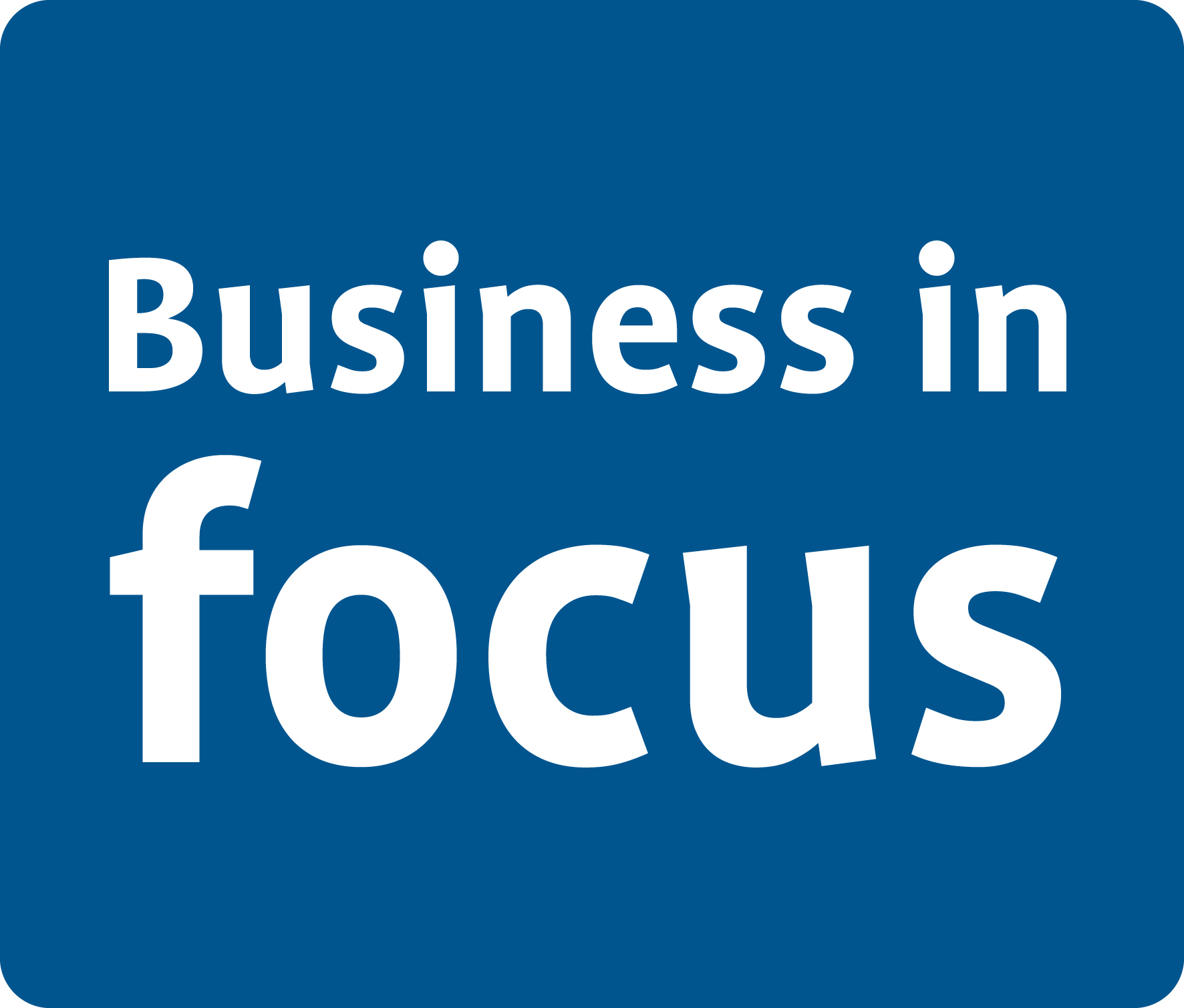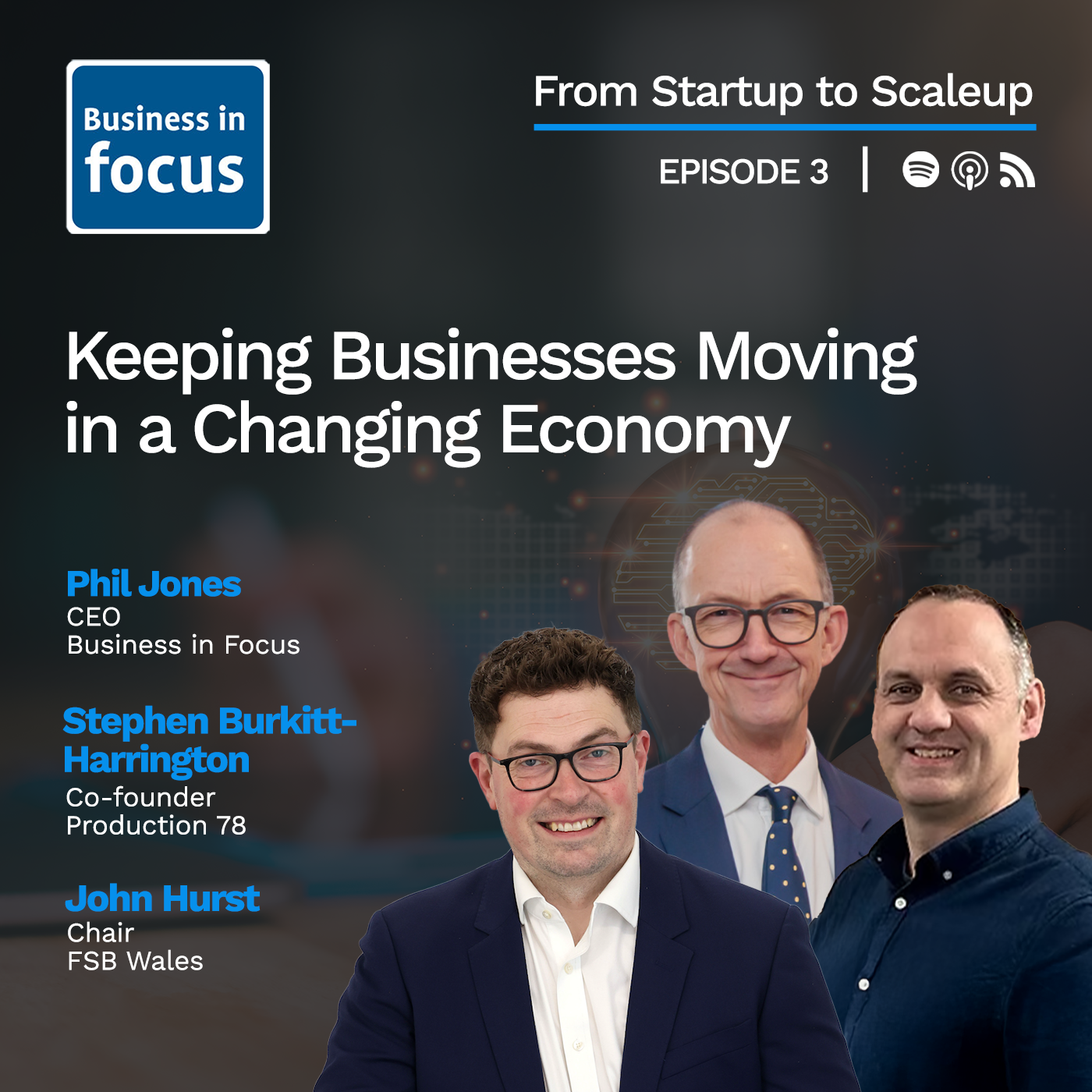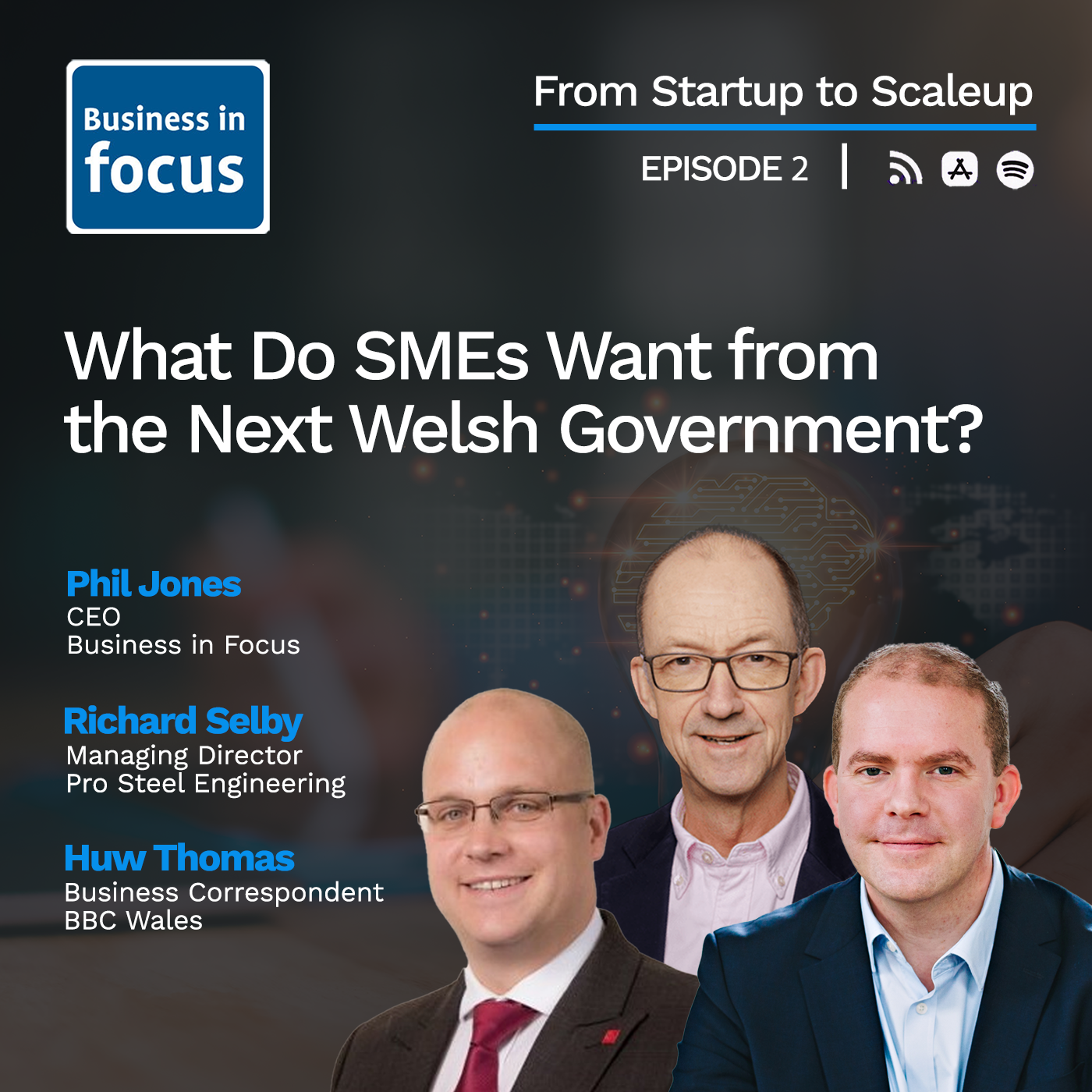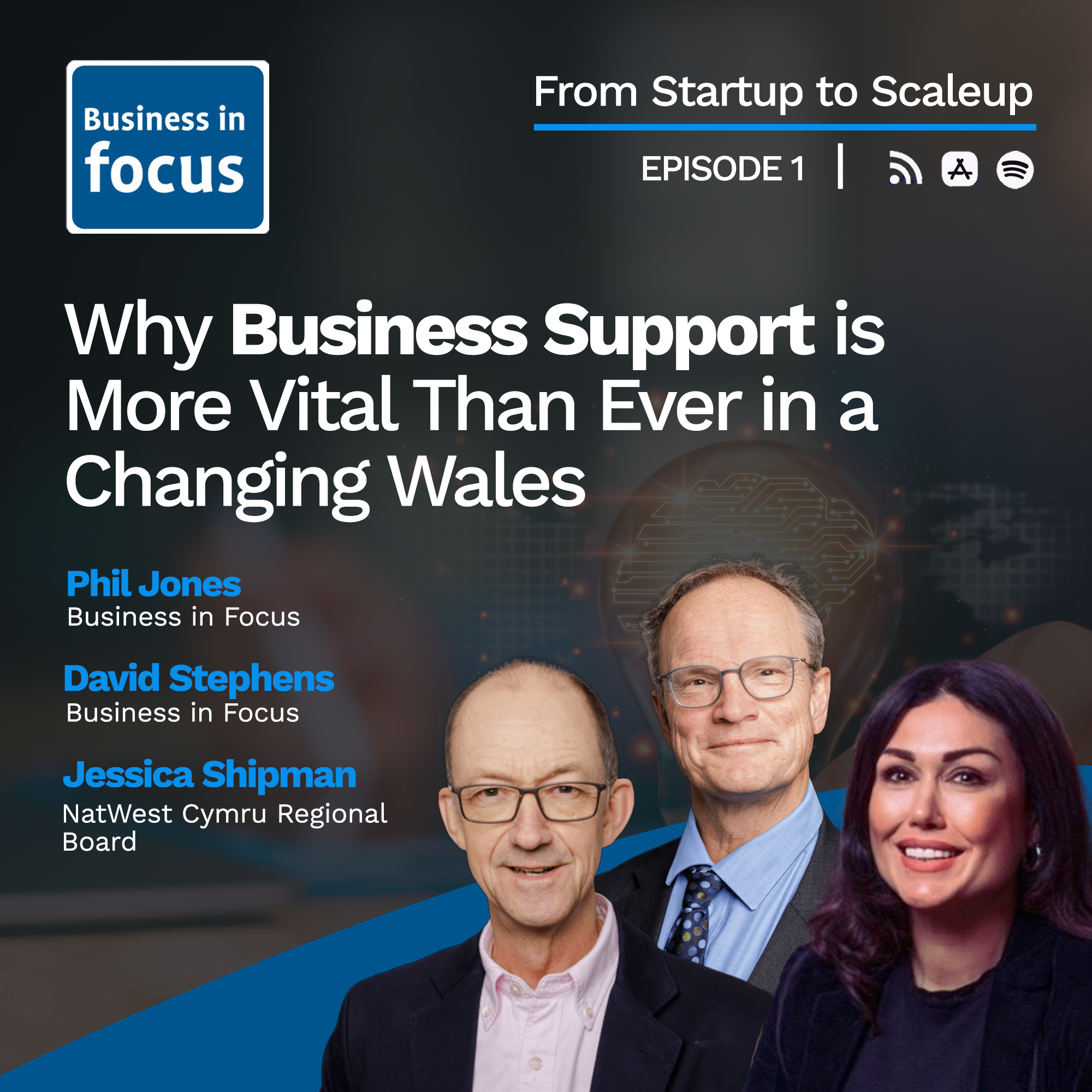Wales’ business community is calling for political collaboration, long-term planning and a sharper focus on economic growth ahead of next May’s Senedd election.
From May 2026, the Senedd will expand from 60 to 96 Members, with a new proportional voting system and 16 larger constituencies each electing six Members. The next Welsh Government will also serve a four-year term instead of five.
Phil Jones, Chief Executive of Business in Focus, said the changes offer an opportunity for a new kind of cooperation between business and politics at a time when Wales is likely to see coalition government.
Speaking on the Business in Focus podcast From Startup to Scaleup he said:
“The world spins on successful businesses. Our taxes, our services, our public sector, our hospitals, they are all contingent on the success of our businesses and the success of the economy.”
Phil said whoever forms the next Welsh Government will inherit “a vibrant and ambitious business support ecosystem”, but added that this landscape can be complex and difficult to navigate. He urged political leaders to build on what already works rather than start again, describing continuity as “essential” for confidence and growth.
He also said contracts and funding programmes should be structured around long-term outcomes, not annual cycles, so that energy and resources can be focused on delivery rather than rebidding. Innovation, he added, should be encouraged, with government drawing on existing expertise within the business support community to modernise and simplify how services are delivered.
Richard Selby, Managing Director of Pro Steel Engineering and Chair of the Institute of Directors (IoD) Wales, echoed that message of continuity but said the election also offers Wales a moment to define its strengths.
He said the next Welsh Government should “back our winners” – those sectors and entrepreneurs best placed to drive growth and job creation – and focus on making it easier for businesses to invest and expand.
Richard said:
“We need to celebrate what we’re good at and back it. We’ve got to back our winners, we’ve got to back our entrepreneurs to go and create growth, put trust in them and celebrate success so people can see that actually making money, spreading wealth, being resilient is something to be proud of as a nation.”
He acknowledged the pressures that firms continue to face, from rising costs and new regulations to challenges around recruitment and energy efficiency standards, but said entrepreneurs were finding ways to adapt. Many, he said, simply want a frictionless environment where they can focus on creating value and reinvesting in their people and operations.
Skills and training remain among the most pressing issues raised by businesses across Wales. Richard, who also chairs The King’s Trust Wales Development Committee, said demand for apprenticeships and lifelong learning far exceeds current funding levels, and that leadership and management skills in small businesses are critical to boosting productivity.
Huw Thomas, Business Correspondent at BBC Wales, said the scale of the 2026 reforms has led many businesses to think differently about how they engage with politics. He said polling suggesting a more fragmented political landscape had prompted firms to open conversations with a wider range of parties.
According to Huw, business leaders are increasingly aware that influence cannot rely on one relationship or one political alignment. They are seeking dialogue across party lines to ensure their priorities – such as reforming business rates, tackling planning bottlenecks and investing in transport and skills – are understood regardless of who holds power in Cardiff Bay after next May.
Listen to the Business in Focus From Startup to Scaleup podcast here.













